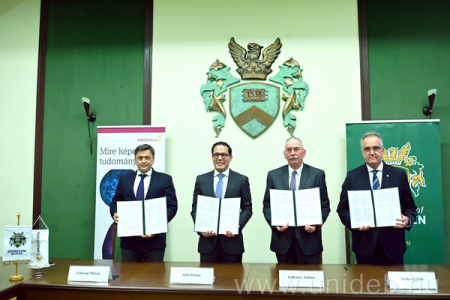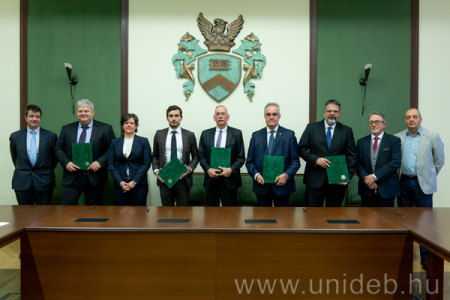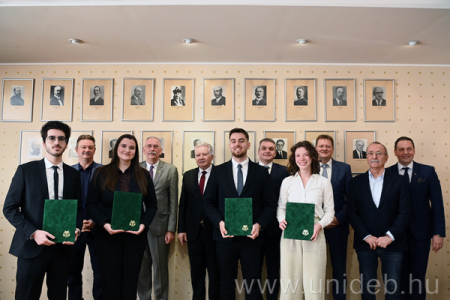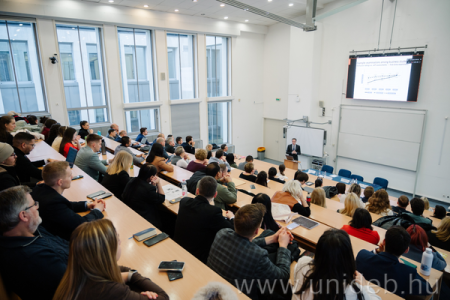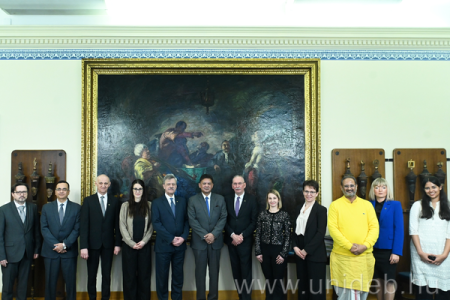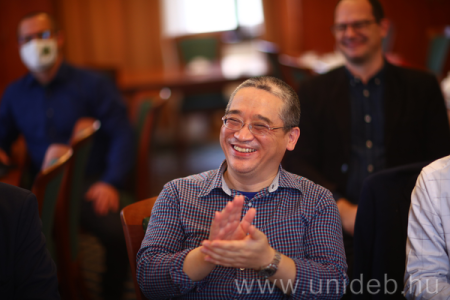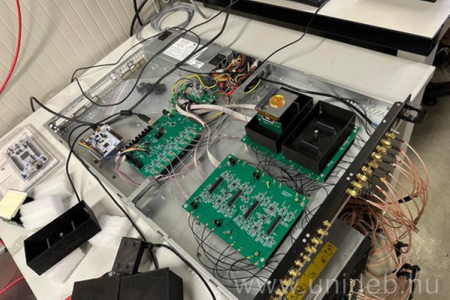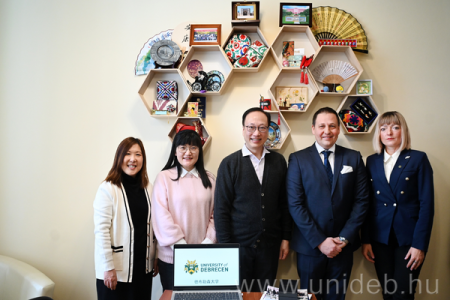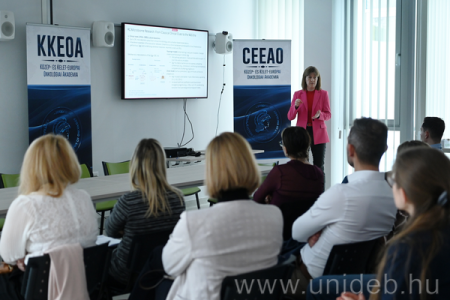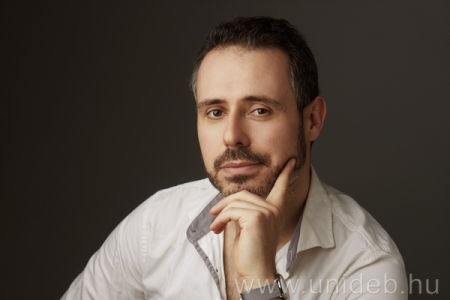There are questions and problems around us that even a grade school pupil can understand, but answering or solving them would take decades or perhaps centuries even for the greatest minds of the world. István Pink, a researcher at the University of Debrecen, and his Japanese colleague Takafumi Miyazaki, have found an answer to a question just like that, which has been open for 30 or 40 years. Their solution was published in one of the world’s most respected and celebrated journals in its field, the American Journal of Mathematics.
A recent examination related to special immune cells in the placenta conducted by research scientists at the University of Debrecen could contribute to a more profound understanding of processes and complications during pregnancy and, in the long run, even to the development of new therapeutic options. It was this group of scientists in Debrecen that were the first to provide a comprehensive genetic picture of the so-called Hofbauer cells. The findings of their international collaborative research project were published in the prestigious international journal JCI Insight.
The Faculty of Agricultural and Food Sciences and Environmental Management of the University of Debrecen has created the Centre for Regional Border Wildlife Monitoring to assess, monitor and preserve the values of wildlife along the Romanian-Hungarian border. Experts from UD and the University of Life Sciences “King Michael I” of Timișoara are working together in the project, which is implemented within the framework of the Interreg VI-A Romania-Hungary Programme.
Consumers’ perception of sports statistics, blockchain as a strategic resource in the European marketplace, the psychological and decision-making mechanisms of sustainable fashion consumption, and work addiction as a new form of deviant organizational behavior were but a few of the topics discussed at an international conference of the Doctoral School of Management and Business at the University of Debrecen. Nearly a hundred presentations were given in as many as nine different sections at the event held on Wednesday at our Böszörményi úti campus.
The University of Debrecen has elevated its level of cooperation with one of the largest global companies specializing in biotechnology to a higher notch in order to provide more efficient services in patient care. The agreement, which was signed on Wednesday, aims, among other things, at supporting the early detection of diseases, the strengthening of appropriate diagnostic pathways and improving patient management in areas that are regarded widespread diseases in Hungary, such as cancer, cardiovascular and chronic respiratory diseases.
A commemorative plaque was unveiled at the Institute of Pharmacology and Pharmacotherapy at the University of Debrecen in honour of Professor Madhaw Singh Baghel, an internationally respected scholar of Indian Ayurvedic medicine and the founding Chairperson of the University of Debrecen's Ayurveda Chair. The ceremonial event on Tuesday was attended by His Excellency Anshuman Gaur, Ambassador of the Republic of India to Hungary. Afterwards, the Ambassador and his delegation met with university and faculty leaders to discuss future cooperation opportunities.
The multi-year professional cooperation between the University of Debrecen and one of the leading healthcare companies in the world, GE HealthCare, continues to increase in intensity. A framework agreement, which was signed on Friday, will take this successful joint work to the next level, where a focus on radiochemical developments as well as state-of-the-art AI-supported radiation planning processes and innovations could make patient care at our Clinical Center safer and more efficient.
The Chinese director of our Confucius Institute (CI) at the Faculty of Arts of the University of Debrecen has become the recipient of a highly prestigious recognition. In 2025, the leadership of Tianjin Foreign Studies University honored Professor Cui Xianjun by awarding him the title of Best Chinese Director of the Year in the pool of directors from as many as seven CIs that they operate as partner institutions.
Through their basic research activity, researchers from the University of Debrecen and HUN-REN ATOMKI have contributed to the development of an innovative detector technology that could lead to significant advances, for example, in areas such as medical imaging systems. The researchers have reached the conclusion that the high-precision time-of-flight detector under scrutiny is equally suitable for use in large-scale physics experiments and in applications used by the general public.
During the course of their visit to the University of Debrecen, the members of a delegation from the Education University of Hong Kong discussed opportunities for cooperation in research as well as teacher and student exchanges. Thanks to this successful establishment of contacts, the representatives of the two institutions are expected to sign an agreement on this issue this coming spring.
Experts from the University of Debrecen have participated in an international symposium reporting on the results of microbiome-related research conducted at our institution, while focusing primarily on its clinical and oncological implications. Besides presenting the recent relevant research results and findings, the meeting on Thursday also provided an opportunity to initiate and establish new research collaborations that would lay the foundation and provide a roadmap for new drug development programs in the future.
The international jury of International Classical Music Awards has recently selected Péter Zombola, professor at the Faculty of Music at the University of Debrecen, as Composer of the Year for 2026. Through this title and award, the jury aims to support musical achievement and creativity at the highest level as well as to promote classical music.
